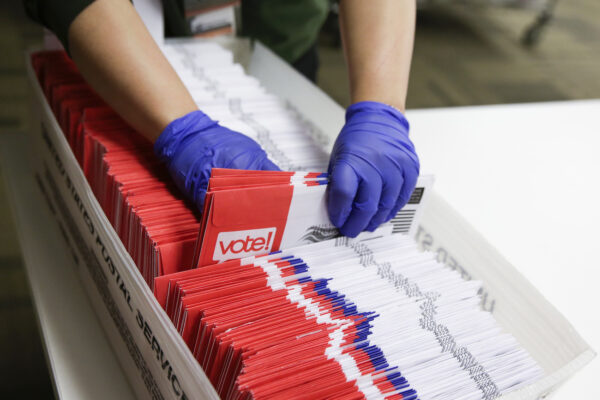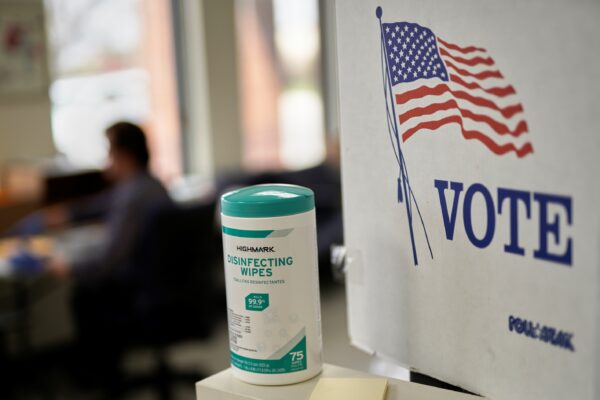The U.S. Supreme Court on July 2 denied a request by Texas Democrats to fast-track (pdf) a review of the partys efforts to expand mail-in voting amid the coronavirus pandemic and ahead of the July primary.
It marks another loss for Texas Democrats in their ongoing battle with state Attorney General Ken Paxton, a Republican, who has argued that only a physical illness or disability that prevents voters from going to the polls should qualify an individual to vote by mail.
Election law established by the Texas legislature generally requires in-person voting, and allows mail balloting only for certain limited groups, including those who are 65 or older, have a disability or illness that renders them unable to vote in-person, those who will be out of the county on election day, and those who are confined in jail but otherwise eligible.
The Texas election code defines disability as a “sickness or physical condition” that prevents a voter from appearing in person without the risk of “needing personal assistance or injuring the voters health.”
Texas Democrats and voting rights groups have argued that voters who are susceptible to contracting the new coronavirus should be able to vote by mail amid the pandemic and have been seeking to expand the definition of “disabled” to include those who fear coronavirus exposure during in-person voting.

In May, the Supreme Court ruled that a that “a voters lack of immunity to COVID-19” is not a physical disability that qualifies people to vote by mail. The decision by the Supreme Court this week means the states current regulations for the upcoming July 14 primary runoff election will remain in place.
The ruling comes just a week after the Supreme Court also declined to immediately reinstate a federal judges order that would immediately expand voting by mail to all Texas voters during the coronavirus pandemic.
A spokesperson for the Texas Democratic Party, Abhi Rahman, said the party will “continue to fight tooth and nail for everybodys right to vote,” and that “all Texans should have clarity on how they can cast their ballot in the November elections.”
While the Supreme Court may still decide to hear the case, this is unlikely to happen before fall.

[contf] [contfnew]



